In Review: ‘The Mastermind,’ ‘Blue Moon,’ ‘Good Fortune’
Kelly Reichardt and Richard Linklater return with triumphant period pieces while Aziz Ansari steps on his own virtue.
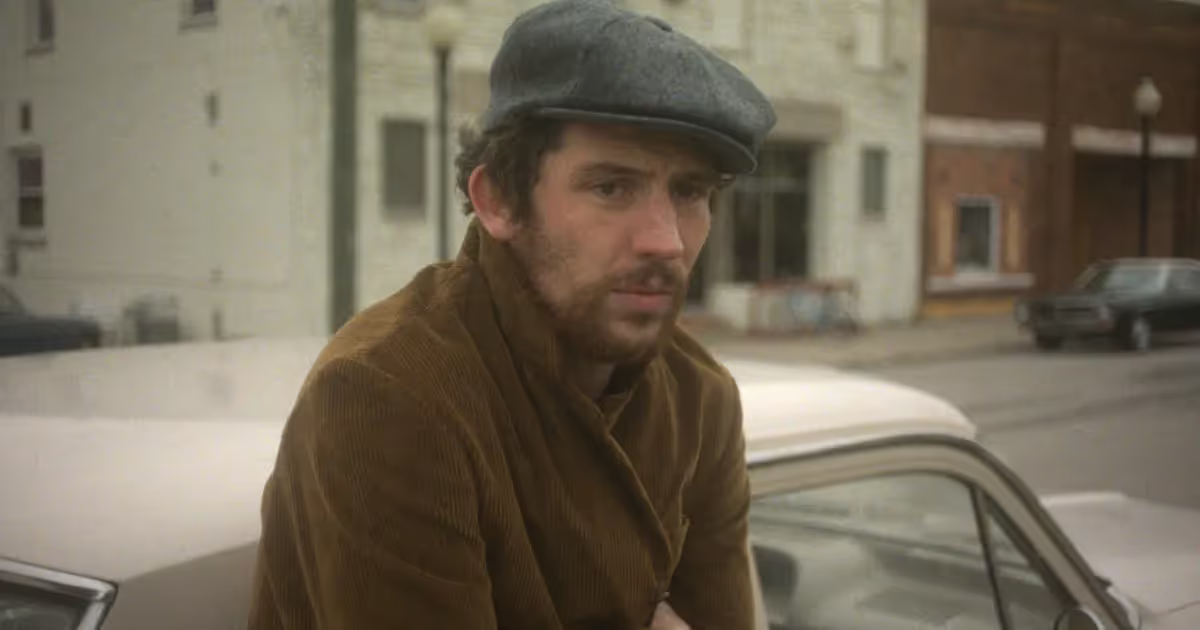
The Mastermind
Dir. Kelly Reichardt
110 min.
Among her many other achievements, director Kelly Reichardt has stealthily established herself as a master of crime picture, though her approach to the genre is so low-key and against the grain that she hasn’t gotten much notice for it. The common denominator is shambling ineptitude: The South Florida lovers-on-the-lam in her debut feature, River of Grass, are fleeing from a shooting that may not have resulted in any casualties; the young Oregon environmentalists in Night Moves have the will to blow up a hydroelectric dam but lack the temperament and know-how; and the 19th century fortune-seekers in First Cow need the purloined milk of a prized dairy cow to make their treasured biscuits. It is natural for characters in crime movies to see their best-laid plans unravel, but Reichardt is the anti-Michael Mann. These plans unravel because those behind them are often comically ill-equipped to make them.
The Reveal is a reader-supported newsletter dedicated to bringing you great essays, reviews and conversation about movies. If you are not paid subscriber, we would love for you to click this button below and join our community.
With her sad, hilarious and deeply ironic new movie The Mastermind, Reichardt has made the inverse of Night Moves, following a young thief who’s living at the height of political activism, but is thoroughly disconnected from it—or, really, from anything else. The year is 1970 and Reichardt is keen to the tensions roiling within the country, as a cultural revolution on the left, fueled by the developing quagmire in Vietnam, is leading to mass protests and clashes on the streets. But where the environmentalists in Night Moves are trying to trigger political action during a time of ’10s apathy, J.B. (Josh O’Connor) is looking out for himself, seeking his own slipstream between the roaring cultural crosscurrents. And he might have pulled it off, too, were he not so profoundly lazy in his planning or so unable to adjust for contingencies. He is called a “mastermind” once in the film, not for his ingenuity but for the plain fact that he initiated the dumbest of dumb art crimes.
One small notch in J.B.’s favor is that he recognizes that the security at a small art museum in his Massachusetts hometown is extremely lax, with one elderly guard who’s usually nodding off in his chair and another elderly guard manning the front doors. His beleaguered wife Terri (Alana Haim), the breadwinner in the family, often joins J.B. and their two sons on museum trips where he imagines a big score without quite thinking it through. An unemployed carpenter and would-be architect, J.B. is an acute disappointment to his father (Bill Camp), a highly respected judge, but his mother (Hope Davis) has a soft spot for him and is willing to loan him some money on the sly. With cash intended for an architectural project that will get his flagging career off the ground, J.B. hires some guys to boost a station wagon and rob four Arthur Dove paintings from the museum in an audacious daytime heist.
Given that paintings cannot be broken down like, say, jewelry, J.B.’s co-conspirators wonder how he plans to fence them and his caginess on that question seems to make them happy they were paid upfront. Though a sizable chunk of The Mastermind is about what happens to J.B. when the authorities (and other, more nefarious actors) are onto him, Reichardt proves herself to be as detail-oriented in how a heist can go wrong as directors like Mann are invested in how they can run like clockwork. There’s still plenty of suspense to be wrung out from amateurs trying to stuff paintings in canvas bag in the middle of weekday morning, but small hassles like the hand-crack on the back window of the stolen station wagon make a huge (and hilarious) difference.
But the true audacity of The Mastermind may be Reichardt’s conception of J.B. himself, who not only lacks nobility or competence, but possesses a compelling vacancy that’s harder to unpack. He’s a man-who-wasn’t-there type, mostly disengaged from his family and entirely disengaged from a culture that’s running conspicuously hot. O’Connor’s performance as a dodgy archaeologist-turned-Etruscan-grave-robber in Alice Rohrwacher’s 2023 film La Chimera is the blueprint for his work as J.B. here, but he tamps down his natural charisma even more for Reichardt, who presents him a blank worth puzzling over. Amoral creatures like him are always prowling in the cut, but it’s hard to guess who they are or what they want or how they plan to get it. Reichardt stares into a mesmerizing void. — Scott Tobias
The Mastermind opens in limited release tomorrow.

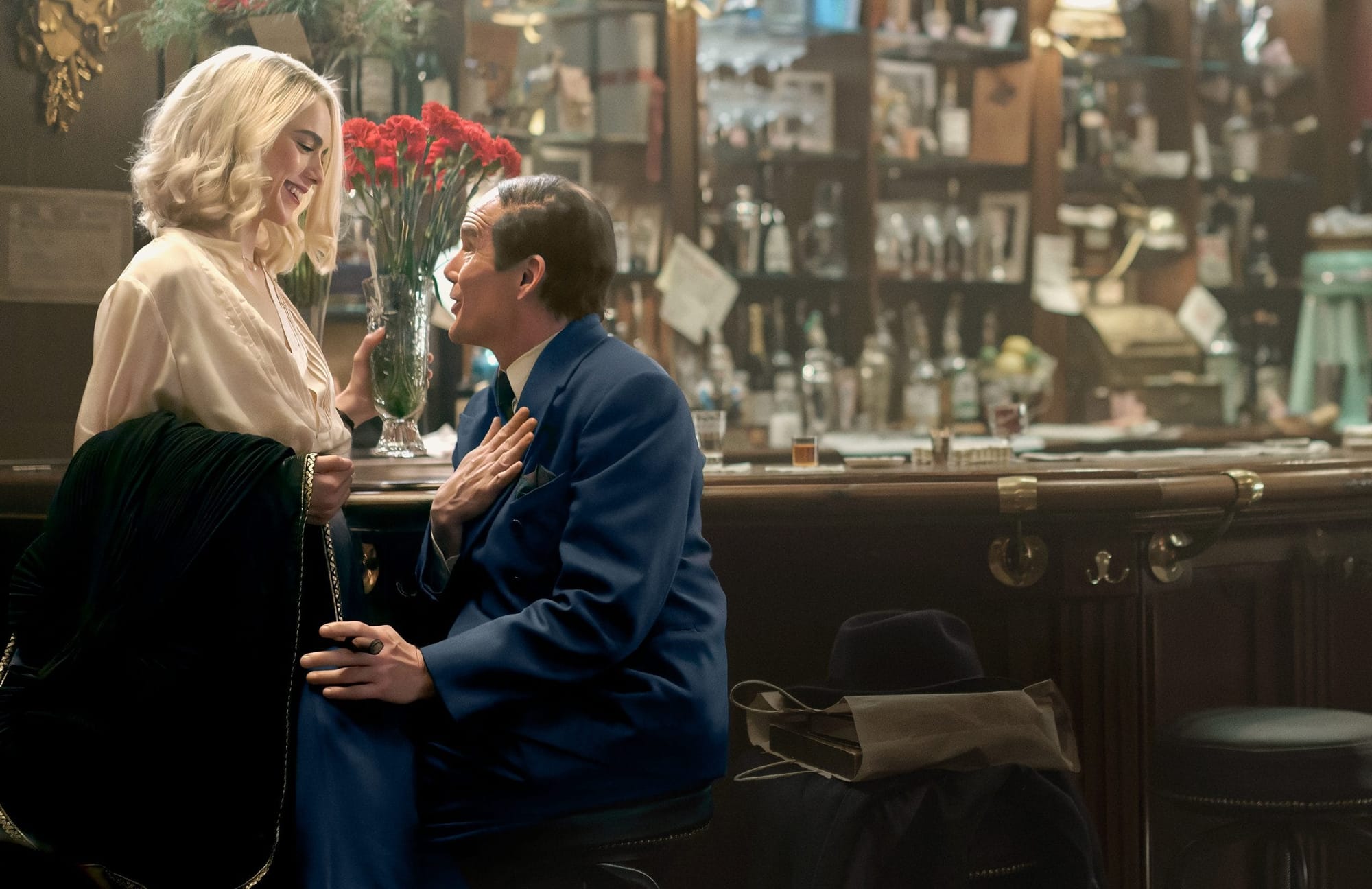
Blue Moon
Dir. Richard Linklater
100 min.
March 31st, 1943 saw the Broadway premiere of Oklahoma!, the first of many collaborations between composer Richard Rodgers and lyricist Oscar Hammerstein II. Hammerstein had worked with several others before partnering with Rodgers, including Jerome Kern, with whom he wrote Show Boat. Rodgers had worked exclusively with Lorenz Hart since meeting the slightly older man while still in high school. They labored together, first with limited success, before producing such deathless American standards as “My Funny Valentine,” “The Lady is a Tramp,” “Bewitched, Bothered, and Bewildered,” “Isn’t it Romantic?,” and “Blue Moon.” The lattermost lends both its title and bittersweet melancholy to Blue Moon, which depicts Oklahoma!’s opening night party at Sardi’s not from the perspective of those enjoying the triumph, but from Hart as he watches from the sidelines.
That the occasion stirs conflicting emotions in the lyricist is an understatement, not that Hart wants anyone to know this. Directed by Richard Linklater and written by Robert Kaplow (whose novel Me and Orson Welles inspired a previous Linklater film), Blue Moon depicts Hart as a whirling dervish of self-deprecating wit who arrives at Sardi’s before the party starts then watches as it leaves without him. It’s one night in Hart’s life, and not a particularly eventful one on the face of it. Yet it encapsulates both Hart’s stormy past and foreshadows his too-short future. An opening crawl informs us that Hart, an alcoholic prone to disappear for long stretches, would die before the end of the year. Blue Moon turns the evening into both a prelude to that event and a postscript to the life and career he already seems to know he’s leaving behind.
Ethan Hawke plays Hart and though it takes a moment to adjust both to his appearance—he’s been made bald and filmed in ways that bring him down to the diminutive Hart’s height—and his rapid-fire delivery, he’s thoroughly, and heartbreakingly, persuasive once that moment passes. While waiting for the Oklahoma! crew to arrive, Hart regales Eddie (Bobby Cannavale), Sardi’s seen-it-all bartender, with jokes and stories, including tales of his undying love for the much younger Elizabeth Weiland (Margaret Qualley). That this passion seems to be a little one-sided—despite Elizabeth’s obvious fondness for Hart—and at odds with Hart’s freely expressed sexual preferences, strikes Eddie and others at the bar as a little odd, but they indulge him. He’s entertaining and endearing. Eddie even does his best to keep Hart on the wagon, at least up to a point.
As the night goes on, it becomes increasingly clear how adrift Hart has become, and how easily he might slip away. When Rodgers (Andrew Scott) arrives, it’s immediately clear how much the composer still cares for his once and, he hopes, future partner but it’s also clear the depth of the frustration that drove him to seek out a new collaborator. Rodgers remains impressed with Hart’s lyrical genius but wary of the unpredictability that comes with it and of Hart’s inability to turn it off. When Hart launches into his plans for a new comedic musical about Marco Polo, Scott lets his face sink in a wordless exhaustion that tells the story of spending too many nights together listening to a flood of ideas that might not go anywhere and too many nights alone waiting for his partner to show up at all. Hart’s either too much or not enough. There is no happy medium.
Hawke’s ability to convey flashes of self-awareness elevates his performance from a brilliant impression to a fully realized tragic portrait. A long scene that finds Hart and Weiland alone makes clear how much he’s directing his energies into an ardor he knows has nowhere to go. Her descriptions of a lover her own age seem to thrill him as much as her presence. Both Hart’s attempts to play at true love and secondhand thrills feel like attempts to distract himself from the story playing out around him, one in which he’ll soon have no role to play.
Linklater makes efficient use of what’s effectively a single location—apart from a few other spots seen in the film’s opening moments—and while Kaplow’s script finds room for some of Rodgers and Hart’s other contemporaries to make drop-ins, like E.B. White (Patrick Kennedy) and a young Hammerstein prodigy named Stephen (Cillian Sullivan), Blue Moon uses such potentially gimmicky moments to cast Hart’s story in the light of the eyes of those seeing him for the first, and possibly last, time. While written for the screen, Blue Moon plays at times like the best possible cinematic version of a stage play, though a play might have not been a suitable home for what’s ultimately an understated piece. The night winds down with no sustained outbursts and no great dramatic confrontations. Blue Moon offers no showstoppers, just the sound of a haunting melody as it begins to fade into silence. —Keith Phipps
Blue Moon opens in select theaters tonight before expanding.

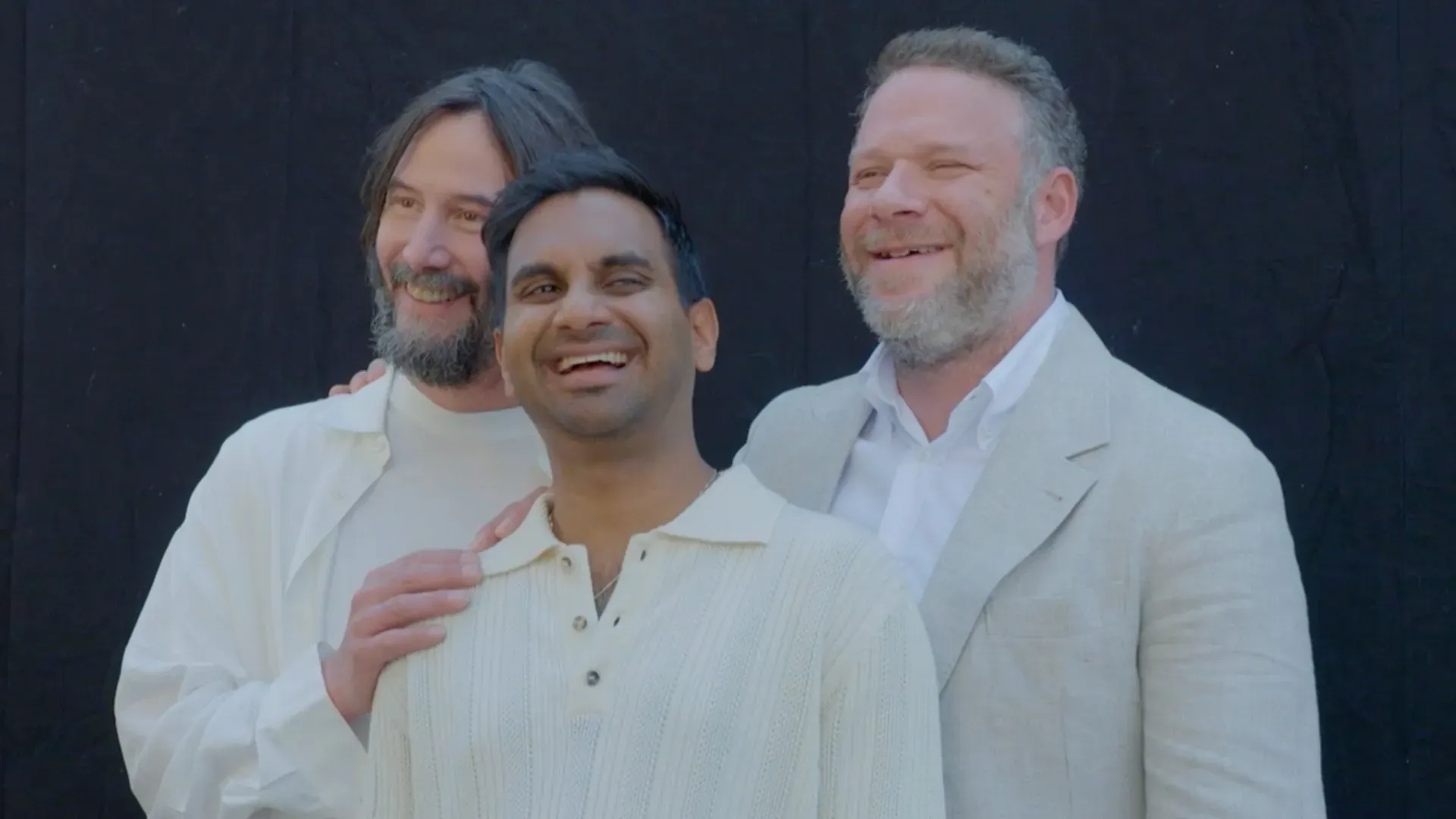
Good Fortune
Dir. Aziz Ansari
97 min.
It’s a pretty weird time for Aziz Ansari to make his feature directorial debut with a comedy about ethics, class disparity, and the many ways those with wealth can ignore the problems of those without it. Like dozens of other comics, Ansari recently performed at the Riyadh Comedy Festival, an event directly sponsored by the government of Saudi Arabia, a repressive regime responsible for everything from murdering journalists to maintaining the death penalty for intercourse between people of the same sex to supporting in-all-but-name slave labor to numerous other disturbing practices. How toxic was the festival? So toxic that Ansari couldn’t persuade Human Rights Watch to take a portion of his earnings in an attempt to launder his reputation. Ideally, any assessment of Good Fortune, Ansari’s Capraesque-aspiring new comedy, should try to look past all that and consider the film’s virtues on their own terms. Unfortunately, it’s a bit like attempting to look past the hamburger in the hand of someone lecturing about the virtues of vegetarianism.
The cognitive dissonance might be more pronounced if Good Fortune was, well, good rather than fitfully mildly amusing. Ansari stars as Arj, an out-of-work documentary editor who fails to make ends meet taking gig economy opportunities at Taskrabbit- and Grubhub-like services between shifts at a Home Depot-like hardware store. After impressing Jeff (Seth Rogen)—a tech bro who spends most of his days floating in his pool, hanging out in his sauna, and shopping for luxury watches—by cleaning up his cluttered garage, Arj talks his way into a job as his assistant. That only lasts until Arj uses Jeff’s company credit card to pay for a fancy meal with Elena (Keke Palmer), a hardware store co-worker attempting to unionize the store. Arj’s plea that he only used the card because he couldn’t afford the restaurant Jeff insisted he take Elena to falls on deaf ears.
Deaf human ears, anyway. All the while, Arj has been watched by Gabriel (Keanu Reeves), a low-level angel charged with saving the lives of L.A. drivers attempting to drive and text at the same time. Gabriel has loftier ambitions and, sensing Arj might be a lost soul, decides to take the extreme step of swapping Jeff and Arj’s places. That Gabriel assumes Arj will quickly see the shallowness of luxury living and demand his own life back is both the film’s best joke and its biggest problem. Arj loves living Jeff’s easy life, but the film’s never convincing when it tries to suggest there’s anything more valuable than, well, valuables.
Reeves is fun in a role that emphasizes the actor’s slightly unearthly qualities. Rogen remains a reliable presence. As a director, Ansari has a keen eye for capturing L.A. unglamorous strip mall spaces, but he’s written himself a role that forces him to stretch beyond his abilities to convey wide-eyed enthusiasm, sad-eyed despair, and not much in between. (And, now in his 40s, Ansari’s a bit old to be playing an entry-level striver.) Ultimately the film mostly serves as a reminder that being poor sucks. It’s the work of someone who didn’t take the time to realize he had nothing to say, then decided to say something anyway. —Keith Phipps
Good Fortune descends into theaters tonight. Here is a link to Human Rights Watch.

Coming tomorrow: A bonus day of reviews during this busy season, including the horror sequel Black Phone 2, Guillermo Del Toro's Frankenstein, and the new Palme-winner from Jafar Panahi.

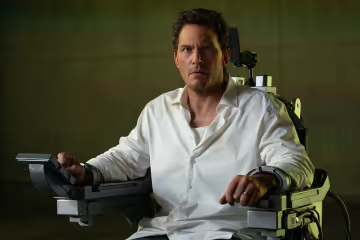
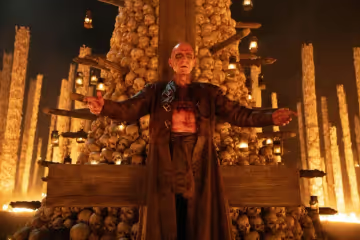
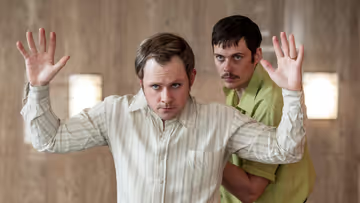
Discussion